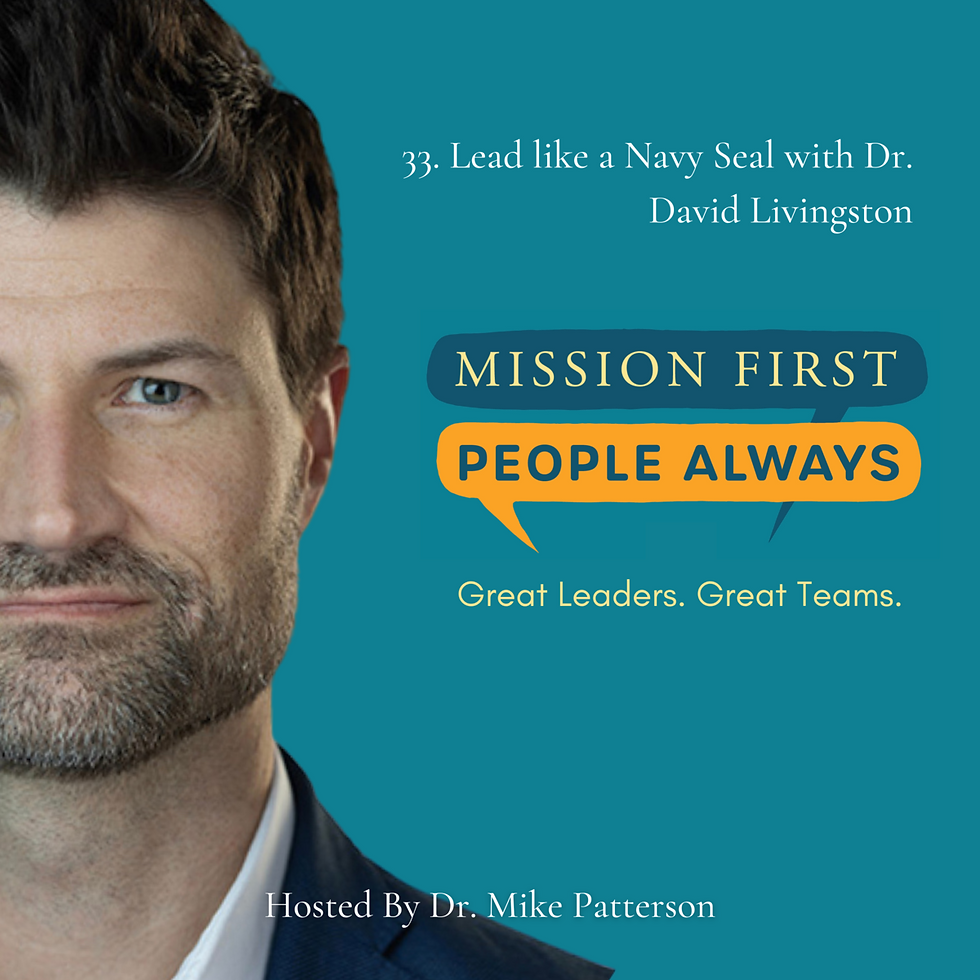author | speaker | facilitator | consultant
Lead like a Navy Seal with Dr. David Livingston
Episode 33
We all admire at the courage, commitment, and success of the US Navy SEAL Teams. These warriors are often thought of as supermen, but in reality, they are just highly trained professionals who work very effectively as a team--even in volatile, uncertain, complex, and ambiguous (VUCA) environments. This does not happen by accident. It is part of their training and their culture--and something other teams can learn from and aspire to become. Our guest on today’s episode has studied what gives the SEAL teams the ability to adapt as a collective unit in the most dynamic circumstances, and shares his findings on the factors that affect the success of these particular action teams. Using data gathered from official documents and interviews with retired Navy SEALs, he has greatly expanded the understanding of dynamic instability as it relates to team adaption in uncertain environments. He shares these lessons learned in practical ways that will be useful to leaders and teams in a variety of industries and settings. Today’s Guest Today’s guest is Dr. David Livingston. David is the Managing Partner of the McChrystal Academy, part of the McChrystal Group in Alexandria, Virginia. The McChrystal Group was founded by retired 4-star Army General Stanley McChrystal, most famous for his command of the Joint Special Operations Command during the Global War on Terror. At the McChrystal Group, Dr. David Livingston leads a team of subject matter experts, learning designers, and dynamic facilitators who develop and deliver custom learning courses and programs that leverage a variety of experiential learning methods–including some really effective simulations–to drive individual growth and higher performance for teams and organizations. Prior to joining McChrystal Group, David worked at the Corporate Executive Board as a Senior Learning Designer, responsible for developing classroom and e-learning programs on best practices of leadership. He also held positions as a Learning and Organizational Development Consultant and a Project Manager at a global engineering firm, charged with leading an accelerated development program targeting high-potential managers. David earned a Bachelor of Science degree in Biology from Messiah College, Master of Arts degree in Practical Theology from Regent University, and a Doctorate of Education in Human and Organizational Learning from the George Washington University. His doctoral research focused on team adaptation in uncertain environments. What You’ll Learn on Today’s Episode: How this research on the Navy SEALS was conducted Definitions of key terms like “dynamic instability, action team, and adaptive capacity” Why having simple rules are important for teams The role of experience in creating adaptive capacity Why relationships are so important for Navy SEALS What factors affect the quality of relationships on teams
